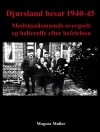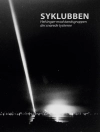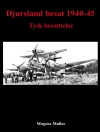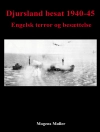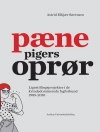Nazi Germany and Southern Europe, 1933-45 is about transnational fascist discourse. It addresses the cultural and scientific links between Nazi Germany and Southern Europe focusing on a hybrid international environment and an intricate set of objects that include individual, social, cultural or scientific networks and events.
Tabla de materias
1. ‘The ‘Invisible’ Export of Thought’: German Science and Southern Europe, 1933-45; Fernando Clara
2. Beyond Germanness? Music’s History as ‘Entangled History’ in German Musicology From the End of the Nineteenth Century to the Second World War; Mauro Fosco Bertola
3. Tourism as Networking for a Pan-Fascist Mobilisation before World War II; Mário Matos
4. Student and Scholar Mobility between Nazi Germany and Southern/Southeastern Europe; Johannes Dafinger
5. International Contacts in the First Years of the Spanish CSIC (1940-1945); Pablo Pérez López
6. The Role of Culture in German-Spanish Relations during National-Socialism; Marició Janué i Miret
7. The Longing for a ‘Conservative Revolution’: German Influences over the Greek Inter-war Politicization of Technology and Science; Vassilios A. Bogiatzis
8. Portugal at the ‘Third Front’; Cláudia Ninhos
9. The Library of the Deutsches Archäologisches Institut Rom and Perceptions of German Scholarship; Frederick Whitling
10. Tracing Eugenics: German Influences on a Greek Background, c. 1930-1945; Giorgos Kokkinos and Markos Karasarinis
11. The Mild Eugenics Temptation in Portugal; Irene Flunser Pimentel
12. A ‘Fascist’ Colonialism? German National Socialist and Italian Fascist Colonial Cooperation, 1936-1943; Eric S. Roubinek
13. Breaking Points of the ‘Axis’: Austrian Scholars, Politics, and Nazi Expansion to the South; Michael Wedekind
14.Planning a ‘Modern Colonization on European Soil’? German Scientific Travels and Expeditions to Greece during National Socialism; Maria Zarifi
15. Citizens of the Third Reich in the Tropics: German Scientific Expeditions to Brazil Under the Vargas Regime (1933-1940); Magali Romero Sá and André Felipe Cândido da Silva
Sobre el autor
Fernando Clara teaches German and Cultural Studies at the New University of Lisbon, Portugal. His research interests include German-Portuguese relations and European nationalisms and cultural studies. Among his publications are Worlds of Words, Travels, History, Science, Literature: Portugal in the German-speaking World 1770–1810 (2007, in Portuguese), the edited book Other Horizons: German-Portuguese Encounters in Colonial Contexts (2009, in Portuguese), and the co-edited volume Europe in Black and White: Interdisciplinary Perspectives on Immigration, Race and Identity in the ‘Old Continent’ (2011).
Cláudia Ninhos is Researcher at the Institute for Contemporary History, New University of Lisbon, Portugal. Her research focuses on the Holocaust, National-Socialism, Fascism, and German-Portuguese relations. Her publications include Salazar, Portugal and the Holocaust, with Irene Pimentel (2013, in Portuguese) and the co-edited volume with Fernando Clara, The Anxiety of Influence: Politics, Culture and Science in Germany’s relations with Southern Europe, 1933-45 (2014, in Portuguese).



